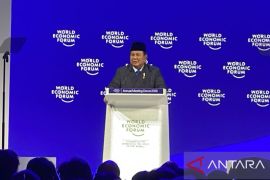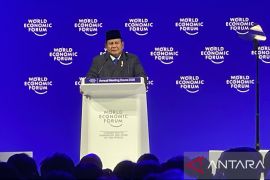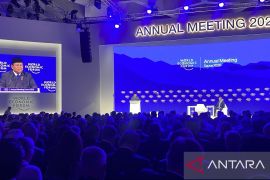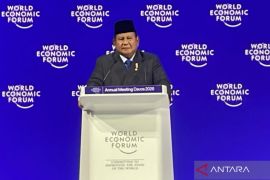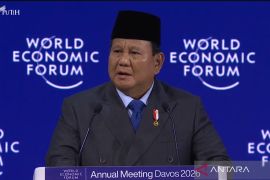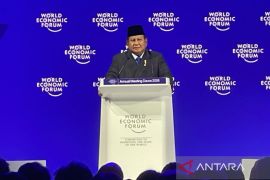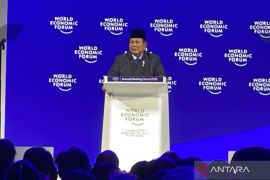"We should prevent volatile-food-triggered inflation. Chili price usually rises in the face of the fasting month and lebaran festivities. We should offset the hikes of other food commodities such as eggs, chickens, meat and rice," Hatta Rajasa, who is also the chief economic minister, said here on Tuesday.
He said that subsidized fuel price increase could also trigger an inflation of about 1.5 to 1.6 percent.
"Inflation might increase at a range between 1.5 percent and 1.6 percent," he added.
He said that in its efforts to curb the inflation, the government would do its best to control the prices of basics necessities so that they would not skyrocket in the run-up to the fasting month which would begin in the second week of July.
With the efforts, the government hoped that the impact of subsidized fuel price hikes on inflation would not be too high, setting the year-on-year inflation assumption in the 2013 Revised State Budget at between 6.9 percent and 7.2 percent.
"We will likely set that rate in the revised state budget. I should not say an exact figure before the House decides it. But I think it will be at that range," he said.
On the efforts to maintain normal inflation level, Hatta said that the government hoped it would be able to create a conducive situation so that excessive increase in the inflation would not happen due to the hike of fuel oil prices.
"We do not want a second round effect of speculative inflation to take place," he said.
He said that the government would soon submit the draft revised 2013 state budget to the House.
The draft is now in the finalization process by the cabinet plenary meetings. It will be finished at the end of this week at the latest.
Hatta hoped that the House would not take too long to finish the deliberation of the Revised 2013 State Budget so that the fuel oil price hikes would be made soon.
"I hope that the House members would be wise to see the matter for the people`s interest. If possible, in the coming two or three weeks it would have been finished for the best of the country`s economy," he said.
In the meantime, an economist has predicted the inflation rate will remain manageable despite the looming increase in subsidized fuel price for private cars.
"The impact of fuel price hike on the inflation rate will relatively be manageable and only contribute 0.41 percent to the inflation rate," Dian Ayu Yustina of Danamon Bank said.
According to her, the prediction will be relevant if the government pushes through a plan to raise the subsidized fuel price to Rp6,500 per liter for private cars.
"Based on our calculation, nearly 75 percent of private cars use subsidized gasoline," she said.
Ayu also said the subsidized fuel price hike will raise indirect inflation by 0.14 percent because the transportation cost of private cars used to carry foods will also increase.
"We predict the year-on-year inflation rate at the end of 2013 will reach 6.02 percent," she said.
The inflation rate will remain manageable because the fuel price hike will not affect public transport modes, he said.
"The negative impact is that the policy will affect the people`s buying power. But the people`s consumption power will remain high," she said.
Overall, Ayu said whatever policy the government will decide with regard to subsidized fuel will give positive sentiments to the market and lower the current account deficit.
Therefore, she predicted the rupiah`s exchange rate against the US dollar will reach Rp9,502 per dollar at the end of this year.(*)
Editor: Heru Purwanto
Copyright © ANTARA 2013
